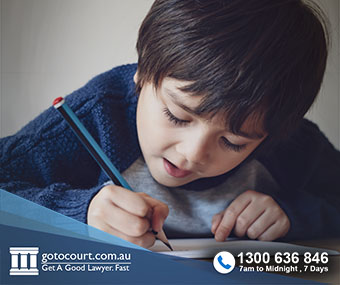Unfair Wills Victoria
A testator should leave a will that is reasonable and fair-minded and which adequately provides for their family members and dependents. When a person leaves an unfair will, certain people are eligible to make a Testator’s Family Maintenance Claim to the Supreme Court of Victoria. This article explains the options that exist when people want to contest unfair wills in Victoria.
What Is An Unfair Will In Victoria?
In Victoria, legally competent adults have testamentary freedom to decide who inherits their assets after their death. However, a fair will provides for the deceased’s spouse, partner, minor children and any other dependents. There is also a general expectation that a wealthy person will provide for their adult children, even if they are financially independent. A testator should not only mention these people but carefully create a bequest that adequately addressed the beneficiaries’ immediate and future financial needs.
Examples Of Unfair Wills
Below are some situations where a person may make an unfair will.
#1 Estrangement
A person who is estranged from their son or daughter may feel justified in excluding that person from their will. It is common for parents to want to “reward” children who have abided by their wishes and exclude or leave only nominal provision for a child who was estranged. However, in Victoria the law considers a child’s financial needs to be more important than estrangement. An estranged child can dispute a parent’s unfair will even if they had little or no relationship with the deceased.
#2 Fair vs Equal Distribution
Sometimes, a parent believes that the fairest approach to will is distributing their estate equally amongst their children. However, this may in fact be an example of an unfair will, as it fails to consider the individual needs of the children, who may have quite different financial situations. For example, the testator should make greater provision for a disabled child who cannot earn their own living than for a child with earning capacity. If a testator does not consider these factors and make a fair will, then the child can file a claim for further provision with the Supreme Court.
#3 Conditional Bequests
A testator can make a conditional bequest in their will so that a person only benefits if they fulfil the conditions. A beneficiary may consider a conditional bequest unfair. Still, the Supreme Court has been reluctant to overrule this type of bequest unless the condition imposed is illegal, impossible or contrary to public policy.
In Hickin v Carroll & Ors (No 2) [2014], a testator left an inheritance to his four children, on condition that they attend his funeral and be baptised as Catholic in the three months after his death. His children did attend his funeral, as requested, but did not meet the second condition because they were Jehovah Witnesses. One of the children brought a claim, arguing that the conditional bequest was unfair given the lack of specificity and limited time frame. The court found that the conditions were not unfair. They did not go against public policy and were not contrary to religious discrimination law.
Who Can Contest An Unfair Will?
Under the Administration and Probate Act 1958, specific persons can dispute an unfair will. Those eligible can make a Testator’s Family Maintenance (TFM) Claim for more provision from the estate. In the past, in Victoria, anyone could contest an unfair will. The Justice Legislation Amendment (Succession and Surrogacy) Act 2014 narrowed the list of eligible people to the deceaded’s:
- Spouse;
- Registered or de facto partner;
- A former spouse or partner who was starting a Family Court proceeding against the deceased;
- Child under 18, including biological, adopted or assumed children or stepchildren;;
Child under 25 who is still studying full time;
- A disabled child;
- Adult child who is in financial need and lacks the means to provide for their own maintenance;
- Registered carer who is not the deceased’s partner or working for payment; and
- Dependent grandchild or dependent member of the testator’s household.
Assessing A Claim In Victoria
The Supreme Court of Victoria asks certain questions to assess if a will is unfair, such as:
- What type of relationship existed between the claimant and the deceased?
- Is the applicant in financial need?
- Did the testator have a moral duty to provide for the claimant beyond the provision they made?
Time Limits To Contest An Unfair Will
An eligible person must contest an unfair will within six months of the probate grant. After this deadline, the Supreme Court may grant an exception and hear an out of time application, but the claimant must have a compelling reason for the delay in making the claim.
If you require legal or representation in any legal matter, please contact Go To Court Lawyers.







